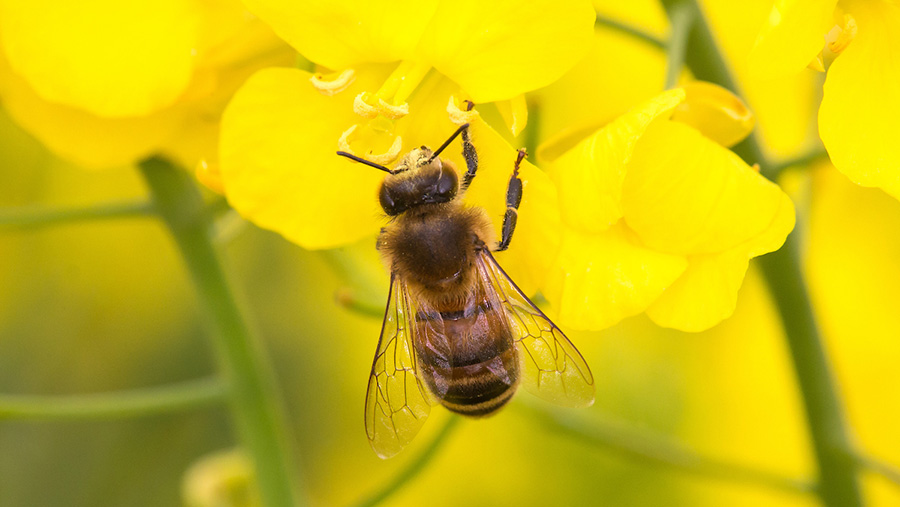Farmers highlight work to protect bees and pollinators
 © Tim Scrivener
© Tim Scrivener Farmers are getting behind a week-long campaign to help raise awareness of the crucial role bees and other pollinators play in food production.
Bees’ Needs Week (13-19 July) is co-ordinated by Defra, working alongside charities, businesses and farming and conservation groups, including the Nature Friendly Farming Network (NFFN) and Championing the Farmed Environment (CFE).
The campaign is encouraging farmers, land managers and gardeners to think how they can improve habitats.
See also: Poll: How would you rate your soil health?
Bees and other pollinators play a crucial role in agriculture – they contribute the equivalent of more than £500m/year to UK agriculture and food production by improving crop quality and quantity, and are also vital to our wider natural ecosystems.

© Martin Lines
Defra minister Rebecca Pow said: “This year, we have seen an increased appreciation for nature in England in response to the coronavirus pandemic, with the nation building back greener.
“Bees’ Needs Week is about celebrating the fact that everyone can get involved by leaving patches of garden to grow wild, growing more flowers, cutting grass less, not disturbing insect nests, and carefully considering how we use pesticides.”
Helping pollinators on farms
Provide food
By protecting, encouraging or planting a variety of spring-, summer- and autumn-flowering plants, you can provide excellent pollinator food sources.
Nectar from flowers is high in sugar and is used by pollinators as a source of fuel. The sugar attracts pollinators to the plant. Good flower species for nectar include knapweed and scabious.
Pollen provides protein and nutrients and is used by pollinators to feed their young. Pollen is also used by the plant for fertilisation to produce seed. Good sources of pollen include red clover, yellow rattle and birds foot trefoil.
Provide a home
Some species prefer to nest above ground in thick vegetation, so hedgerows and areas of tussocky grass are valuable. Others nest underground, often using disused mammal holes, so creating an area where small mammals can create burrows (for example, dry ditches or banks of earth) will benefit pollinators as well as the small mammals.
Source: CFE
Martin Lines, UK chairman of the NFFN, said pollinators provide enormous benefits to the food system, farming businesses and people’s wellbeing.
Sally-Ann Spence, a mixed farmer from Oxfordshire, has a nectar margin, pollinator strips and 40ha of grassland on her farm.
These important habitats for pollinators have increased beneficial insects, which has reduced chemical use. The insects also support other important wildlife species on the farm, such as farmland birds, and help the ecosystem on the farm to thrive.
